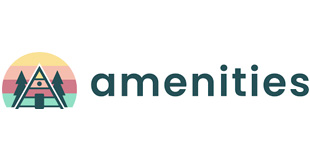Digital health startup Xealth has raised an additional $3 million in a series A financing round and has attracted new investment from major health systems Atrium Health, Cleveland Clinic and the MemorialCare Innovation Fund.
The health systems join existing investors McKesson Ventures, Novartis, Philips, ResMed, Threshold Ventures (formerly DFJ Venture), Providence Ventures, UPMC and Froedtert and the Medical College of Wisconsin health network. The latest raise brings their total for the funding round to $14 million.
Originally incubated and launched at Providence St. Joseph Health in 2017, Xealth is a digital prescribing platform that enables clinicians to prescribe patients digital health tools—apps, connected medical devices, digital health content and nonclinical services like food delivery—from their electronic health records (EHRs).
The company already works with UPMC, the Froedtert & the Medical College of Wisconsin health network, Baylor Scott & White, Duke and other health systems.
To date, Xealth has secured $22.5 million in funding. Xealth CEO Mike McSherry said the funding will be used to further develop the platform.
The company is a growing player in what McKesson Ventures executives call the “digital supply chain” that makes it possible for healthcare providers to prescribe and monitor digital therapies.
Pharmacy benefit managers (PBMs) also are moving into this space. Last month, Express Scripts announced plans to launch what the company called the industry’s first digital health formulary, a curated list of applications and devices for patients. Earlier this month, CVS Caremark, CVS Health’s PBM, unveiled a platform to help its payer clients manage digital health and wellness tools.
CVS’ platform currently includes one product, Big Health’s Sleepio, a digital tool aimed at improving sleep.
“We are already building and executing a digital health formulary,” McSherry said, noting that Xealth’s platform has more than 30 digital health solutions. Over a million patient interactions are being prescribed and monitored by health systems through the platform, he said.
The company will be working with 50 digital health vendors by the end of the year, according to McSherry.
He said there is a “collective pushback” against the idea of PBMs owning the distribution channel for digital health tools
“The PBMs own the supply chain into pharmacy and medications and they see digital health as a complement to or perhaps even serving as a better tool for chronic care,” he said.
Xealth builds relationships with healthcare providers whose clinicians will be using the platform and recommending digital therapeutics to their patients, McSherry said.
“We’re providing the collective view of the provider industry into best practices for patient care as well as monitoring and measuring the effectiveness of the tools,” he said.
In November, Xealth announced a new feature that enables doctors to send patients recommendations for over-the-counter products and includes buy links to e-commerce platforms like Amazon.
Growth of digital health tools
With a proliferation of digital health tools, healthcare organizations need a way to manage and drive utilization of these solutions.
Xealth’s platform is embedded in the EHR so clinicians can prescribe and monitor digital health content, apps, devices and services from within their charting workflow. Monitoring and analytics capabilities assist healthcare organizations in determining which digital health strategies are working, according to the company.
The company also can onboard new digital health vendors in a fraction of the time.
The move to value-based care necessitates deeper coordination between providers and patients, said Brant Heise, managing director of MemorialCare Innovation Fund.
“In addition to encouraging collaboration, Xealth tracks results and engagement from digital health programs, making it easier for healthcare organizations to report on outcomes,” Heise said.
The platform “bridges the digital divide” between clinicians’ workflows and patients’ everyday lives, said Rasu Shrestha, M.D., executive vice president and chief strategy officer for Atrium Health. Care teams at Atrium Health are using the platform, and the ability for providers to prescribe and monitor digital health tools directly from within their clinical workflow enables strategies that will improve health and dramatically better the consumer experience, he said.
“Atrium Health is committed to using innovative solutions to provide the best care for our patients, both inside and outside the clinical environment,” Shrestha said.
Patients who are well-informed are generally more engaged in their care, creating deeper partnerships with their providers, according to Peter Rasmussen, M.D., medical director of distance health at Cleveland Clinic.
“Delivering the right materials to the patient and having the analytics to know the information was viewed fits nicely with our goal to deliver access anytime, anywhere,” Rasmussen said.



